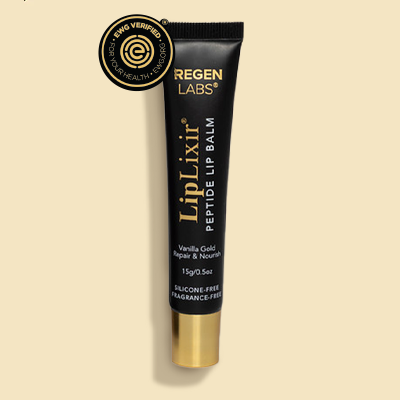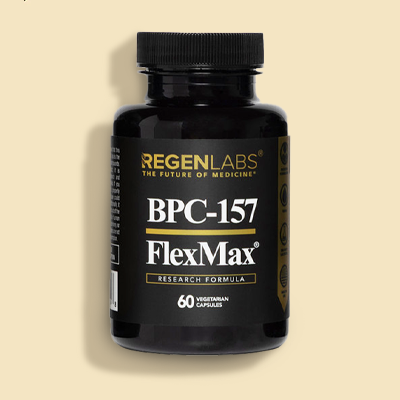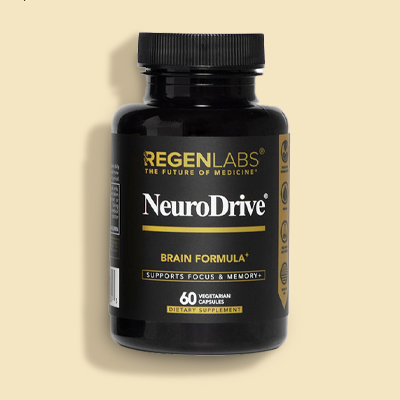Pushing your limits is essential for growth but when intense training isn’t paired with proper recovery, the result can be overtraining syndrome or, worse, complete athletic burnout. These aren’t just setbacks, they're full-body breakdowns that impact hormones, gut health, tissue repair, and motivation.
That’s why more athletes are turning to recovery-enhancing peptides like BPC-157. While best known for healing tendons and muscles, this compound is gaining recognition for its ability to support the nervous system, reduce inflammation, and restore systemic balance after high physical stress.
What Is Overtraining Syndrome?
Overtraining syndrome (OTS) occurs when training intensity outpaces the body’s ability to recover. It’s marked by symptoms like persistent fatigue, reduced performance, chronic soreness, and mood changes. Unlike standard fatigue, OTS doesn’t resolve with a day or two of rest as it requires a longer recovery cycle and often points to dysfunction in the HPA axis, which governs how the body responds to stress.
Burnout goes even further, affecting mental resilience. Athletes may feel emotionally drained, disinterested in training, or experience a sense of physical “shut down.” This isn’t just in your head as chronic stress triggers elevated cortisol levels, immune suppression, and cellular dysfunction.
How BPC-157 Helps Reset Recovery Pathways
BPC-157 is a peptide derived from protective gastric proteins. While still considered a research compound, preclinical studies have shown consistent regenerative effects across multiple systems. It works by signaling the body’s natural repair mechanisms rather than masking symptoms.
Lowers Inflammatory Markers
Overtrained athletes often show elevated inflammatory cytokines, particularly TNF-α and IL-6. BPC-157 helps reduce these markers, lowering systemic inflammation and promoting a healthier recovery environment. This is critical for reducing the stress burden on muscles, joints, and internal organs.
Repairs the Gut Lining
Heavy training can impair gut barrier function, which is a condition commonly known as “leaky gut.” When the gut lining becomes permeable, toxins and bacteria enter the bloodstream, increasing systemic inflammation. BPC-157 supports the regeneration of intestinal mucosa, restoring proper digestion, nutrient absorption, and immune regulation.
Regen Labs’ Flex Max delivers a clean, clinical-grade dose of BPC-157 designed specifically for joint and tissue recovery. Its formulation also supports the gut-lining benefits many athletes overlook.
Supports Neurochemical Balance
One of the most overlooked aspects of athletic burnout is its neurological component. Studies suggest BPC-157 helps modulate neurotransmitter activity, especially dopamine and serotonin pathways, which are deeply involved in motivation, focus, and mood. This may explain why users often report feeling mentally sharper and emotionally more balanced after starting peptide therapy.
Complementary Strategies That Amplify Results
While BPC-157 is powerful on its own, it’s even more effective when paired with other foundational recovery habits:
-
Optimize Sleep: The majority of muscle recovery and hormonal repair occurs during deep sleep. Peptides can assist with repair, but sleep is non-negotiable.
-
Lower Training Volume Strategically: Backing off intensity even temporarily, allows inflammation to resolve and recovery systems to reset.
-
Manage Cortisol: Adding adaptogens or stress-lowering formulas like InstaZen can help restore HPA axis function and reduce overtraining symptoms.
-
Focus on Anti-Inflammatory Nutrition: Include omega-3s, curcumin, and magnesium to naturally reduce muscle and joint inflammation. These nutrients pair well with peptides for full-spectrum recovery.
When Should You Use BPC-157?
Athletes might benefit from using BPC-157 when:
-
Injuries linger despite rest or therapy
-
Fatigue and soreness persist even after deloading
-
Digestive health declines during training cycles
-
Motivation dips and mood swings become frequent
-
Hormonal labs show signs of stress or dysfunction
Flex Max can be used proactively between training cycles or reactively when early signs of overtraining appear.
Final Thoughts
Overtraining syndrome and athletic burnout are complex, systemic issues. BPC-157 offers a science-backed way to intervene early, reduce internal stress, and support your body’s natural repair process. With its ability to lower inflammation, heal the gut, and restore neurological balance, BPC-157 goes beyond basic recovery supplements. And when delivered in a formula like Flex Max, it becomes a powerful tool for athletes who demand longevity, not just short-term gains. Don’t let overtraining derail your performance. Support your recovery at the cellular level and come back stronger.











